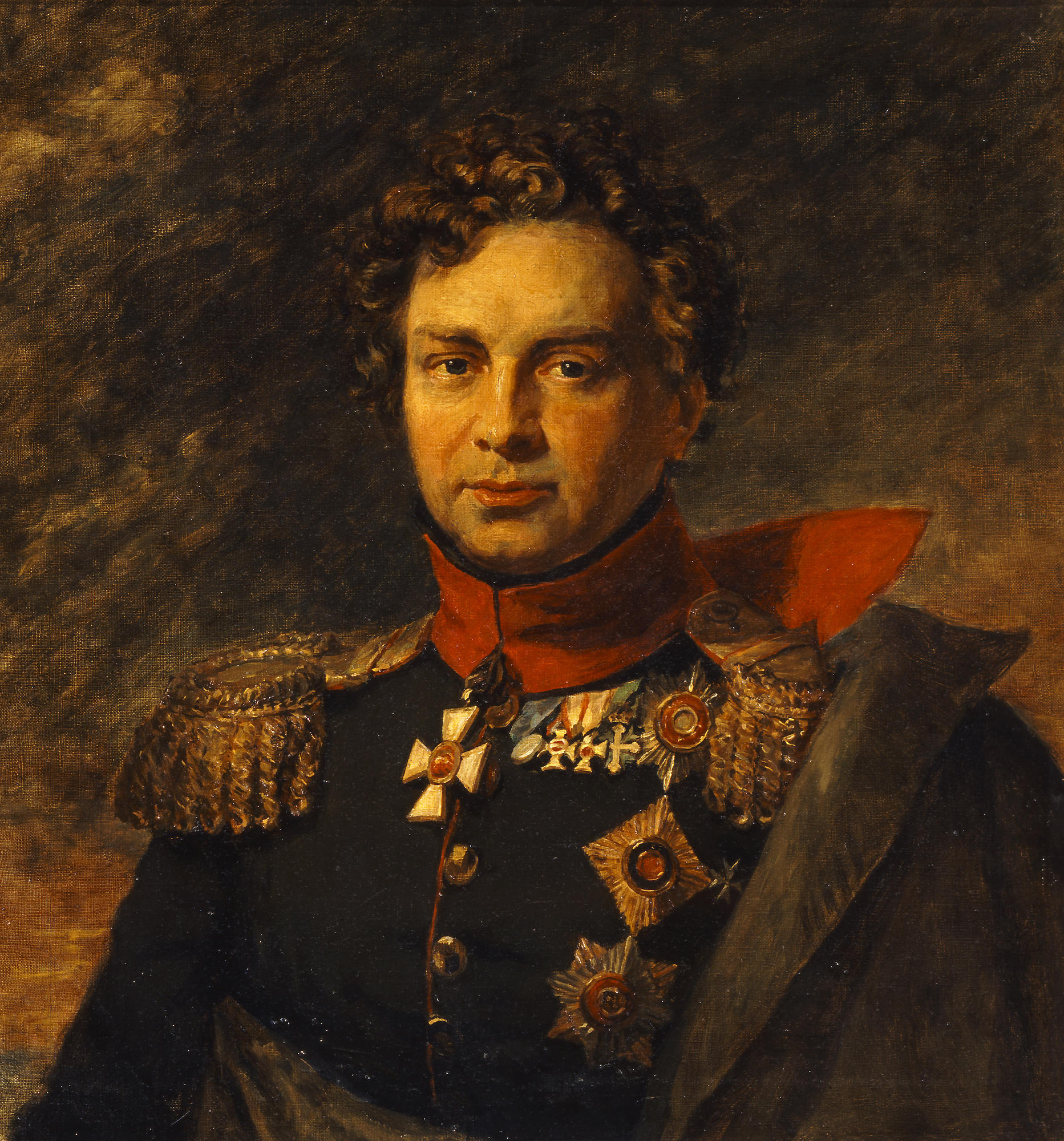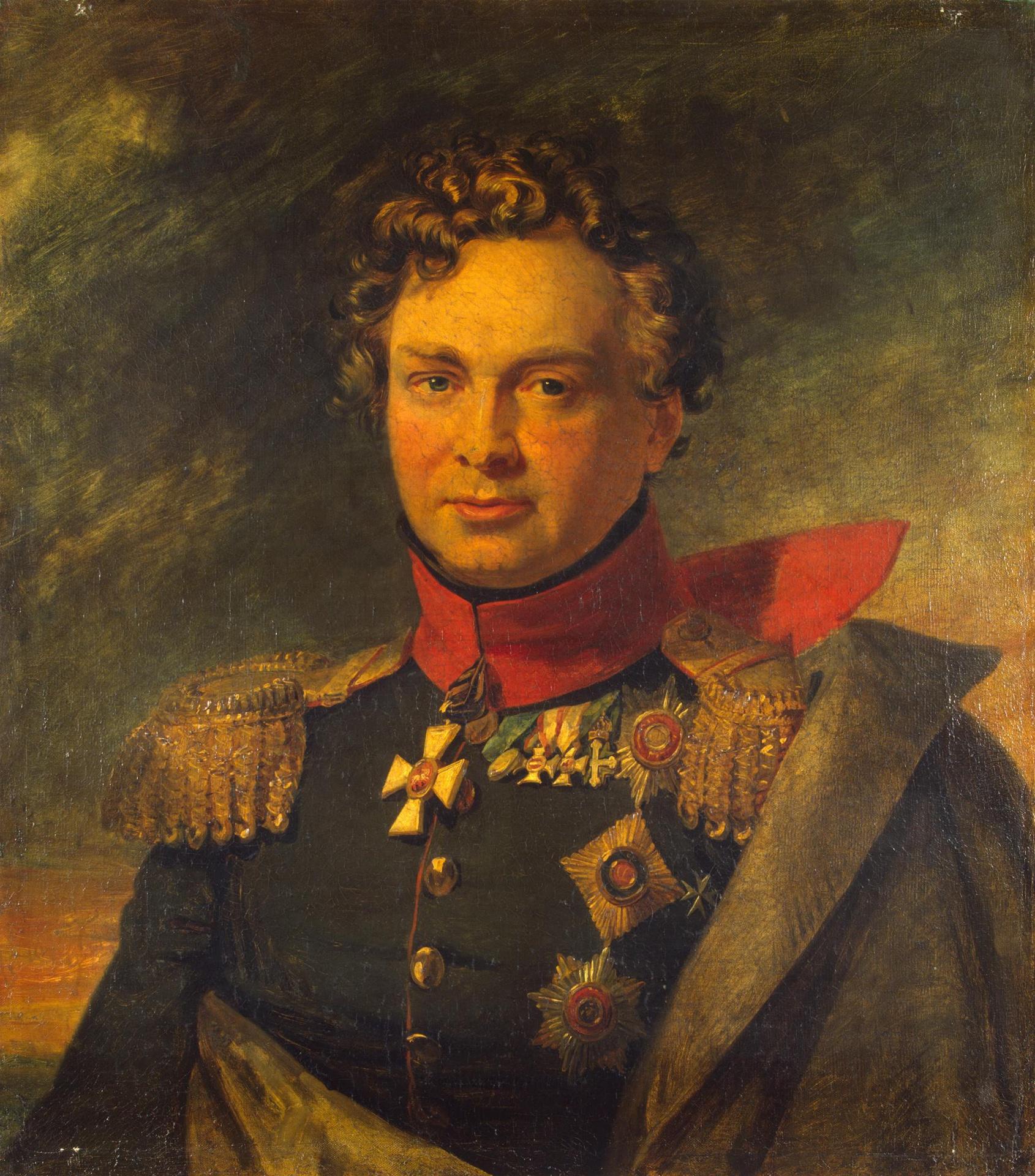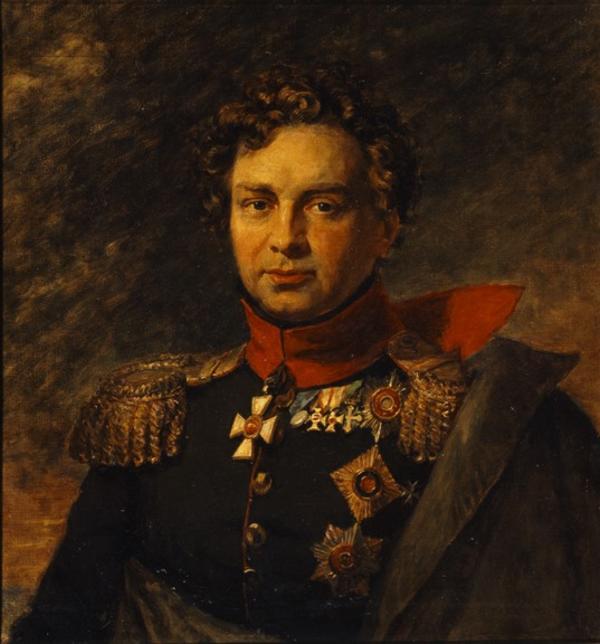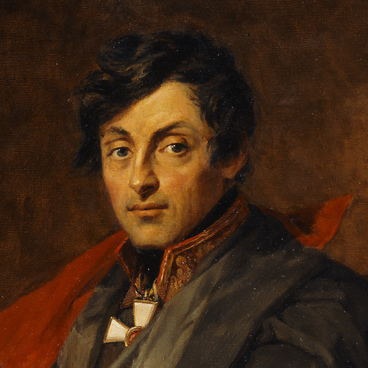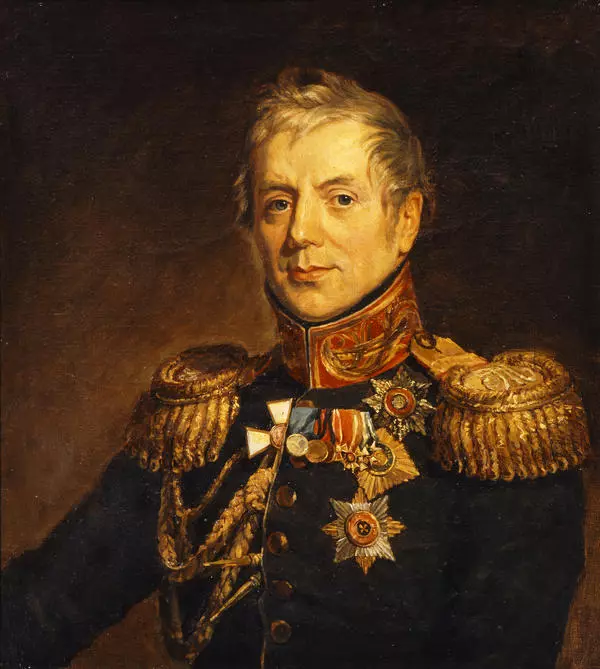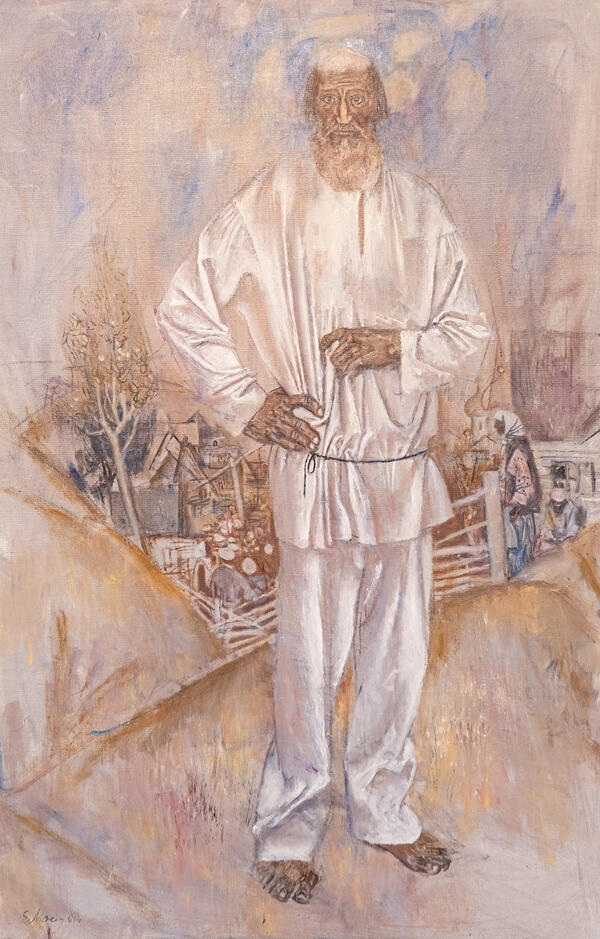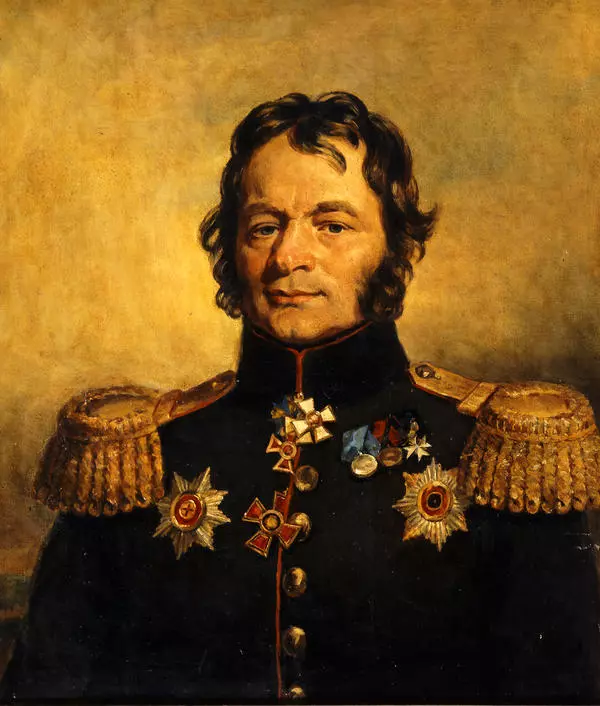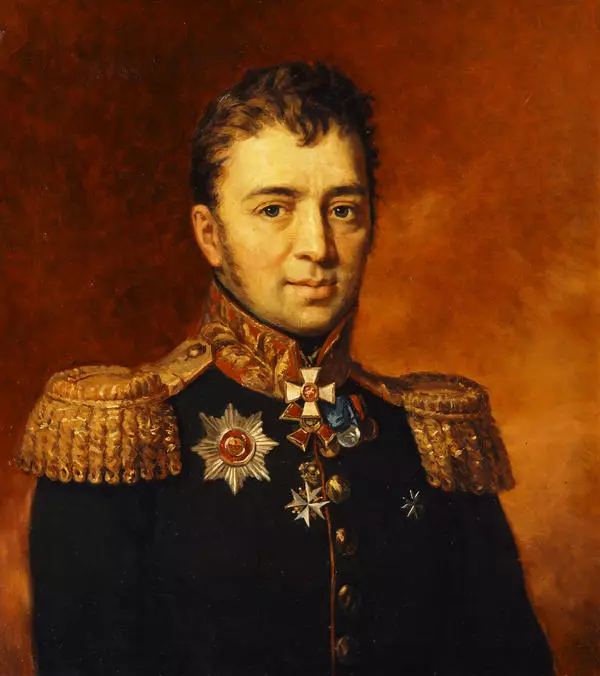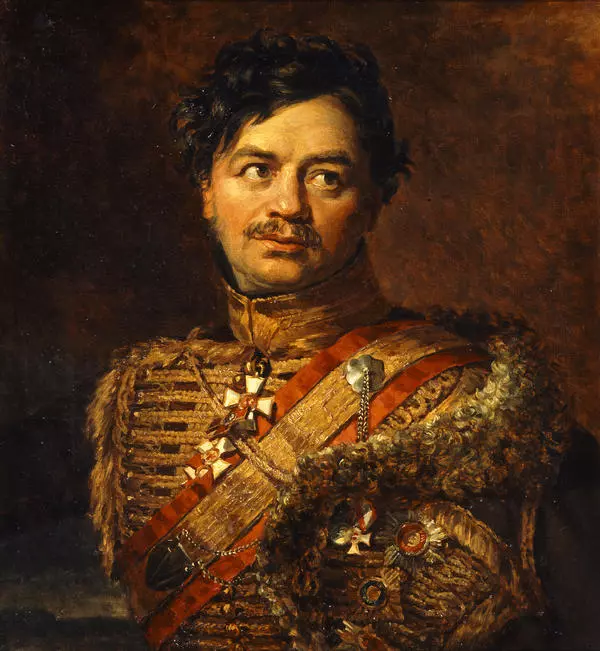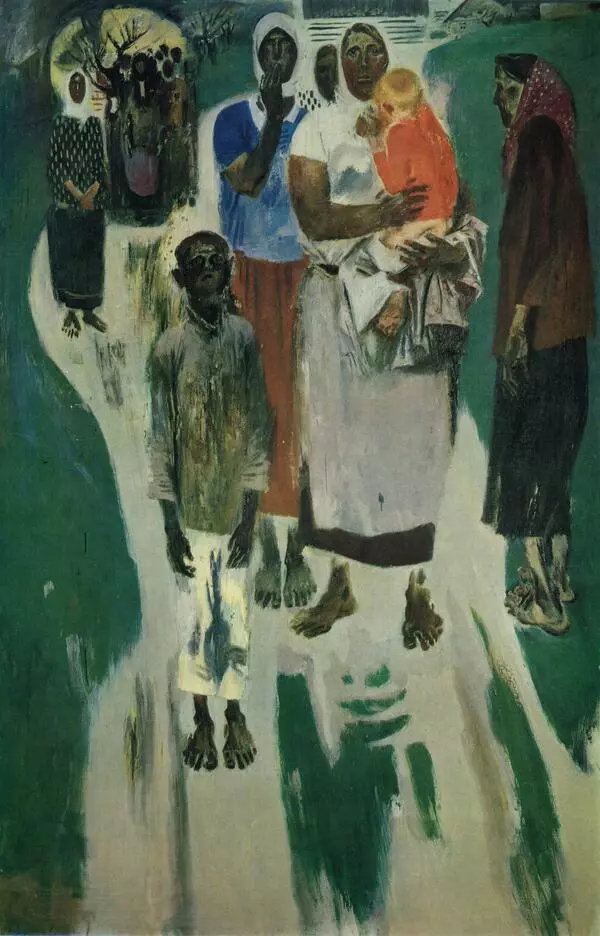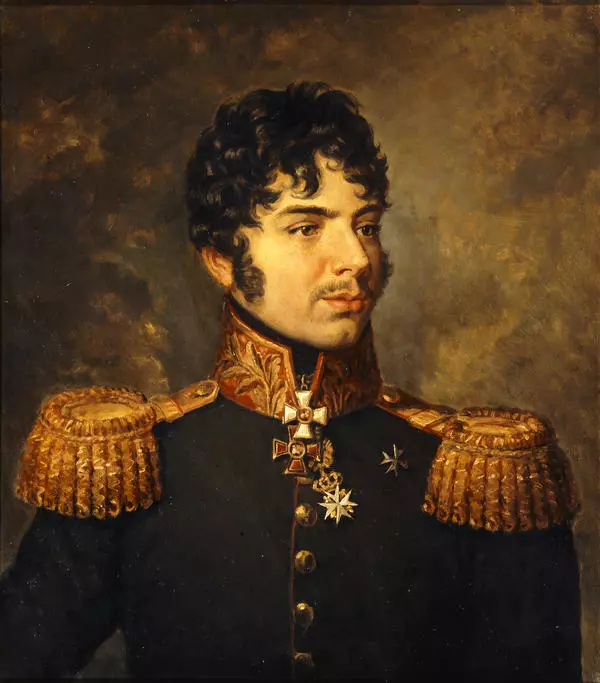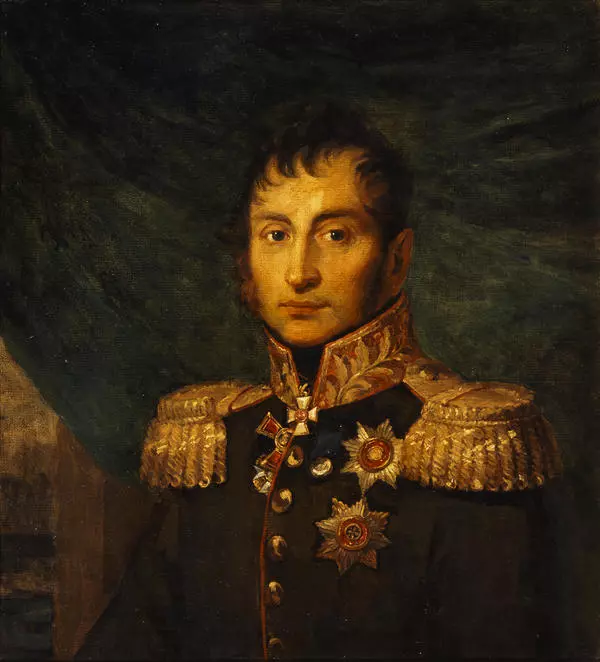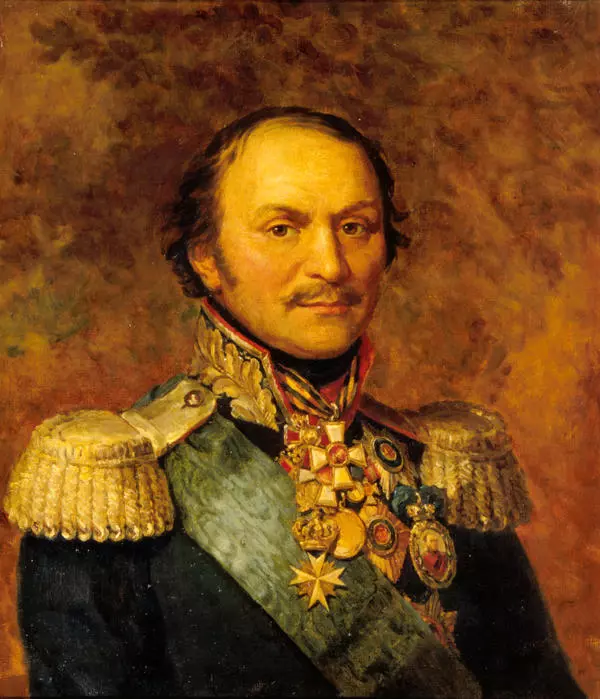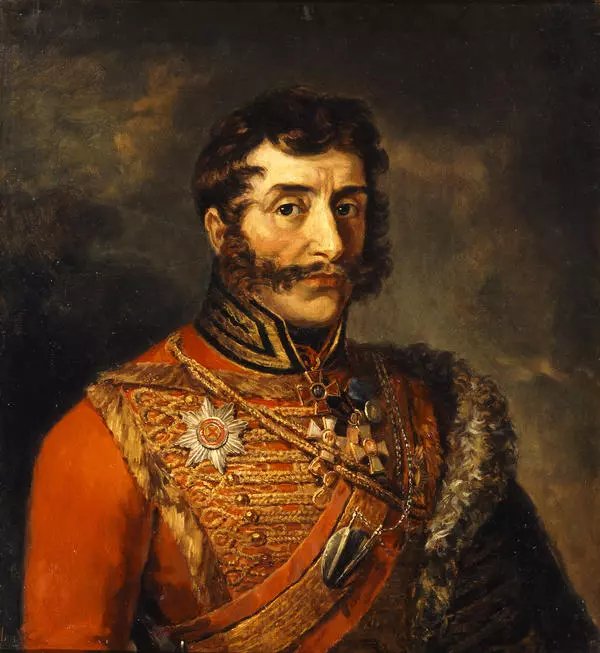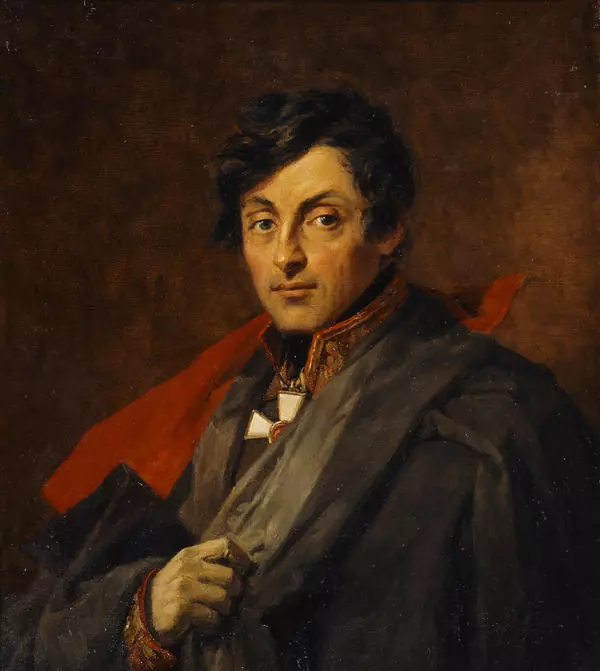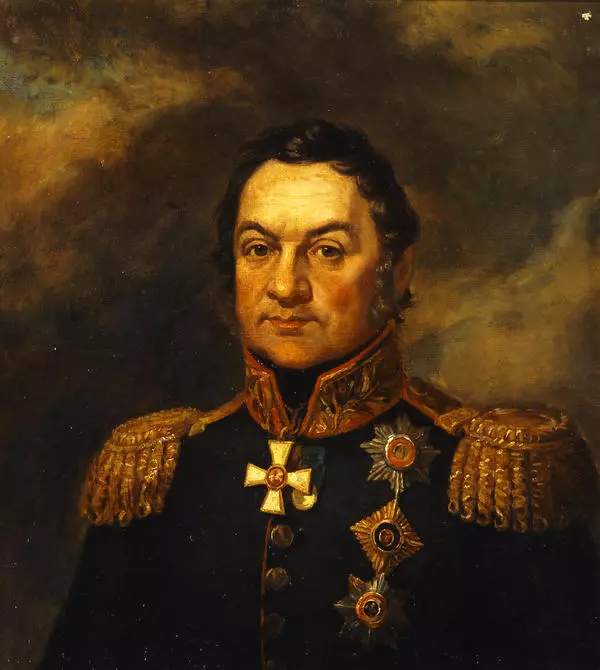The portrait of Prince Andrei Gorchakov was painted in the workshop of the English artist George Dawe in the 1820s. In 1819-1829, Dawe worked as a court painter in St. Petersburg. At that time, together with his assistants, he created more than three hundred portraits of Russian military leaders who participated in the Patriotic War of 1812. These portraits formed the War Gallery of the Winter Palace. The Museum-Panorama ‘Battle of Borodino’ holds a copy of the portrait of Gorchakov, which was painted in 1964.
Andrei Gorchakov was the nephew of military commander Alexander Suvorov. He started his career as a sergeant in the Leib-Guard Mounted Regiment, a particularly privileged part of the Russian Army; next he served as a warrant officer in the Leib-Guard Preobrazhensky Regiment. Within a few years, he made his way from Warrant Officer to Colonel, and in 1798 Gorchakov was promoted to Major General.
Gorchakov participated in Suvorov’s Italian and Swiss campaigns in 1799. He distinguished himself in several battles, received four orders, and in 1800, for his courage in crossing the Alps, was promoted to Lieutenant General - he was only 21 years old.
In 1806, Andrei Gorchakov became commander of the 18th Infantry Division, with which he took part in the war of the Fourth Coalition against the French. However, in 1807, Emperor Alexander I concluded the Tilsit Peace Treaty with Napoleon - Russia and France became allies.
Two years later, Napoleon’s intelligence service intercepted a letter from Gorchakov to Archduke Ferdinand, Commander-in-Chief of the Austrian Army. In that letter, the Prince congratulated Ferdinand on his latest victory and expressed hope that Russian and Austrian troops would soon fight together again against the French.
By Imperial order, Gorchakov was committed to a court martial. Alexander I ordered ‘to dismiss him from all services, never again accept him in these services and prohibit entry into both capital cities’. On September 29, 1809 Gorchakov was retired.
However, in the summer of 1812, Alexander I called the general back to active duty and appointed him commander of the Avant-Garde Corps. On August 24, 1812 Gorchakov was in command of a detachment that defended the Shevardino redoubt. On August 26, during the Battle of Borodino, the Prince was seriously wounded. For the defense of Shevardino, he received the Order of St. George (the highest military award in the Russian Empire), 3rd class.
During the foreign campaigns of 1813-1814, the general took part in the battles of Dresden, Leipzig, Brienne, Arcy-sur-Ob, Fer-Champenoise. In 1814, Gorchakov was awarded the Order of St. George, 2nd class, for distinguished conduct in the assault of Paris.
Andrei Gorchakov was the nephew of military commander Alexander Suvorov. He started his career as a sergeant in the Leib-Guard Mounted Regiment, a particularly privileged part of the Russian Army; next he served as a warrant officer in the Leib-Guard Preobrazhensky Regiment. Within a few years, he made his way from Warrant Officer to Colonel, and in 1798 Gorchakov was promoted to Major General.
Gorchakov participated in Suvorov’s Italian and Swiss campaigns in 1799. He distinguished himself in several battles, received four orders, and in 1800, for his courage in crossing the Alps, was promoted to Lieutenant General - he was only 21 years old.
In 1806, Andrei Gorchakov became commander of the 18th Infantry Division, with which he took part in the war of the Fourth Coalition against the French. However, in 1807, Emperor Alexander I concluded the Tilsit Peace Treaty with Napoleon - Russia and France became allies.
Two years later, Napoleon’s intelligence service intercepted a letter from Gorchakov to Archduke Ferdinand, Commander-in-Chief of the Austrian Army. In that letter, the Prince congratulated Ferdinand on his latest victory and expressed hope that Russian and Austrian troops would soon fight together again against the French.
By Imperial order, Gorchakov was committed to a court martial. Alexander I ordered ‘to dismiss him from all services, never again accept him in these services and prohibit entry into both capital cities’. On September 29, 1809 Gorchakov was retired.
However, in the summer of 1812, Alexander I called the general back to active duty and appointed him commander of the Avant-Garde Corps. On August 24, 1812 Gorchakov was in command of a detachment that defended the Shevardino redoubt. On August 26, during the Battle of Borodino, the Prince was seriously wounded. For the defense of Shevardino, he received the Order of St. George (the highest military award in the Russian Empire), 3rd class.
During the foreign campaigns of 1813-1814, the general took part in the battles of Dresden, Leipzig, Brienne, Arcy-sur-Ob, Fer-Champenoise. In 1814, Gorchakov was awarded the Order of St. George, 2nd class, for distinguished conduct in the assault of Paris.
